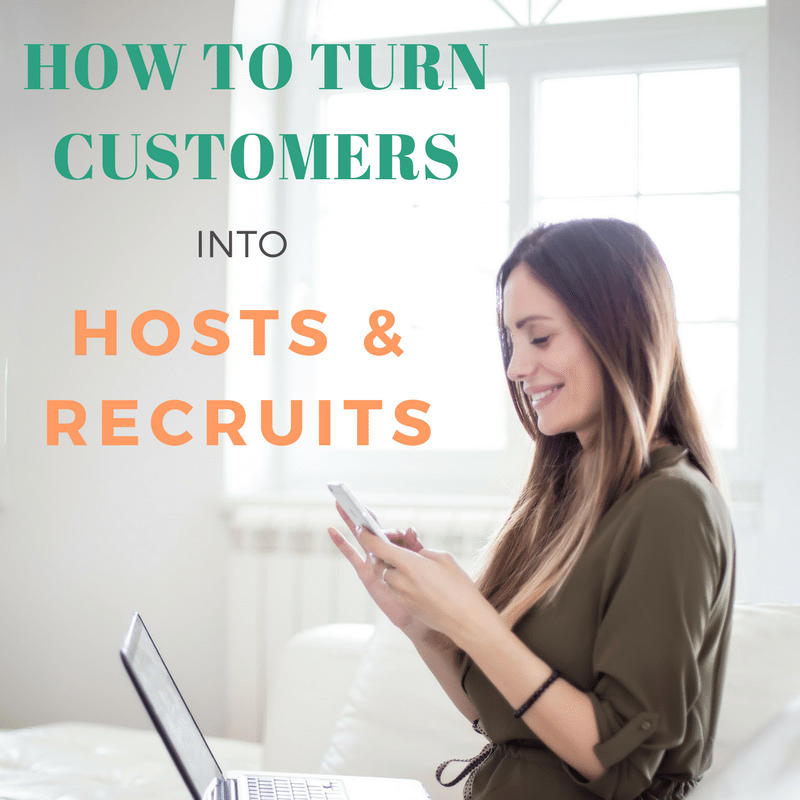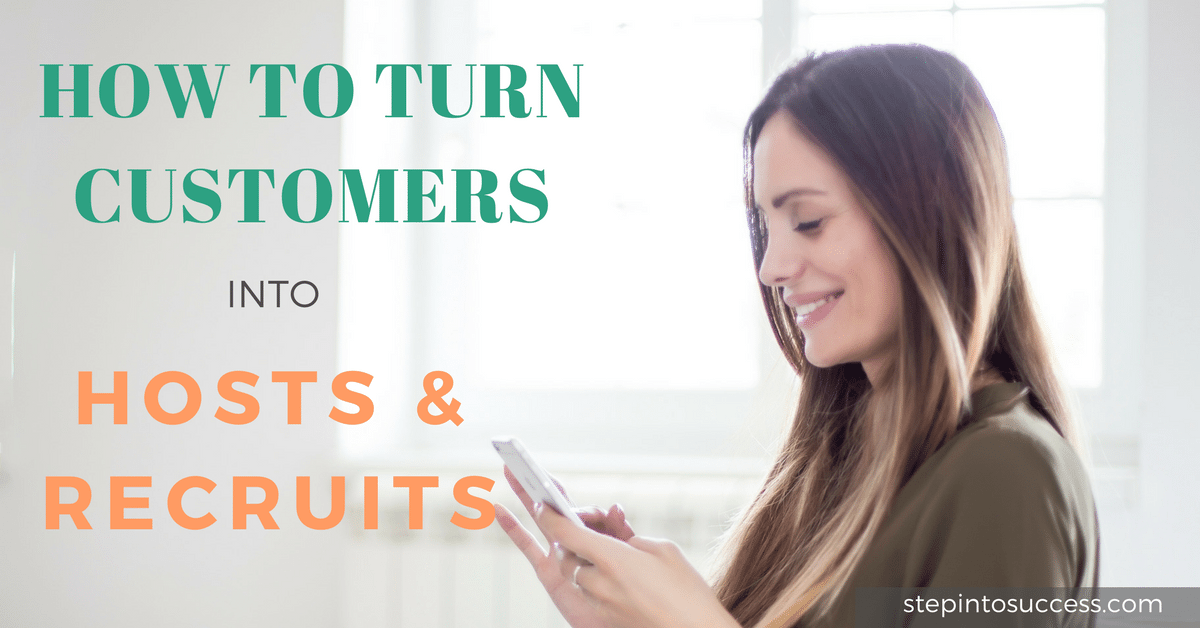If you've been in direct sales for any length of time, you know that you need three things to build your business…
Sales, Bookings, and Recruits
To increase sales, bookings, and recruits, you need 3 types of people…
Customers, Hosts, and Recruit Leads (people who are considering the business or who want more information)
For many direct sellers, finding customers is the easiest of the three. You are passionate about promoting your products online, at events, and one-on-one. But, talking about your host program or business opportunity may feel more challenging. Or, when you do share, you can't seem to get anyone to commit or follow-through.
Keep in mind that not everyone is going to be interested in having a party or becoming a consultant and that is OK. You still need and will benefit from having customers!
However, there are 3 simple strategies that will increase the number of customers that you turn into hosts and new team members.
Strategy 1: Keep it all about them.
Sharing your host program or business opportunity is not about talking people into doing something they don't want to do. It's not about begging someone to help you out so you can earn a company incentive. It's about getting to know your customers and finding out how your programs and opportunities can benefit THEM. And when you understand the VALUE of what you're offering, you'll share with confidence!
“Sally, I know how much you love our ______ collection. What other pieces or items are next on your wish list? What if I could show you how to get that for free or on sale?”
“Carol, you mentioned that your family and friends are all loving the products you've been sharing with them. Have you ever thought of doing something like this? Is there anything about what I do that you've wondered about?”
Asking questions is the key to getting to know the needs of your customers. And then offer solutions that fill those needs. Whether they are looking to save on products or want to have a fun night out with friends or an opportunity to earn extra income working part-time, YOU offer solutions.
Strategy 2: Uncover their concerns.
The key to finding new hosts and customers is not just knowing what to say, but also how to listen. If you ask someone if they would like to get their friends together for a fun party and that person says, “no”, be sure you aren't too quick to move on from the conversation. Sometimes they say no simply because they have a concern that can be overcome with more information.
For example, you might respond to a no by saying, “I asked because you seemed really excited about the products and had a good time participating in our event. Is there anything, in particular, that's holding you back?”
Here is where you stop and listen. They may share that they don't know a lot of people. So you can say,
“It sounds like you are worried about attendance. The good news is that there is no minimum number of guests needed for a party and long distance family and friends can participate online. We can also remind each guest that they can bring a friend and we're going to have a great time with whoever can join us. How does that sound?”
Just by validating their concern and offering a solution and some encouragement, you can turn a no into a yes. So take time to find out more about their hesitation.
Strategy 3: Consistently Follow-Up
One thing I learned from Belinda Ellsworth early on in my business is that it's very common for someone to respond with a quick “no” when asked about something. But, it may mean that they just don't have time to think about it right now. That's why it's so important to follow-up.
Think about a time that you were invited to attend an event such as a social event for work or a neighborhood get-together. Maybe you initially said, “Thanks for the invitation, but I've got so much going on that I won't be able to attend.”
A little later that same person asks you if you are planning to attend the event and you say, “I don't know. Maybe. I'll have to see how my schedule pans out.”
Another week or two goes by and that person messages you saying how much they are hoping to see you at the event. This time you say, “You know what. That sounds like fun. Yeah, I'll see you there!”
This scenario is common when you invite people to host or take a look at the business. Initially, they may decline, simply because they are busy and just don't want to think about it right now. But, after some time passes, if you reach out again they may be more open to the idea. Many business owners will assume a “no” means never contact me again. But, you will miss so many opportunities if you don't follow-up.
The other reason why follow-up is so important is because needs and situations change. I once asked one of my hosts if she had ever considered becoming a consultant because she loved the products and her friends all loved attending her parties. She politely declined. However, I still followed up with her two weeks later to see how she was enjoying her products. She then shared that her husband had just lost his job. Her needs changed and she was ready to get more information. If I had never followed up, it's unlikely she would have contacted me.
By focusing on the needs of your customers, uncovering their concerns, and following up consistently, you will turn more customers into hosts and recruits.
As always, we love to hear from you. How do you think these strategies will change the way you approach your customers?


